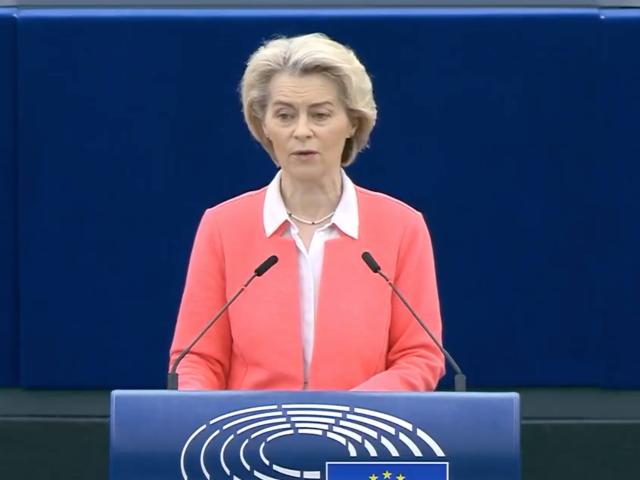The European Union is poised to escalate its stance towards Israel by advocating for a durable ceasefire in the Gaza Strip. This development, as reported by the German newspaper Süddeutsche Zeitung, indicates a significant shift in the EU's approach, diverging from previous calls for temporary humanitarian pauses. The decision is expected to be formalized at a forthcoming summit in Brussels, where the leaders of the 27 EU member states will convene.
The draft declaration obtained by Süddeutsche Zeitung underscores the EU's demand for an "immediate humanitarian pause in the fighting, leading to a permanent ceasefire," marking a departure from earlier, more limited appeals. This call notably omits any mention of the Israeli hostages, including women, who are reported to have been subjected to sexual abuse by Hamas. This oversight is particularly glaring given the October 7 incident, where Hamas kidnapped and allegedly raped hundreds, an act that precipitated the current conflict. The EU's omission is seen as a unilateral shift that potentially absolves Hamas by neglecting the catalyst for the war.
Canada no longer calls for immediate release of hostages in a ceasefire. They are all taking marching orders from QATAR -> The USA, EU, and Canada. 🇺🇸🇪🇺🇨🇦https://t.co/EwlwZwOSY0 https://t.co/NXNGD8KPuh pic.twitter.com/oCbdIX0jLT
— Ron M. (@Jewtastic) March 11, 2024
In a further exacerbation of tensions, the EU's Foreign Minister, Josep Borrell, accused Israel of deliberately inducing a famine in Gaza. Speaking at a Brussels conference on humanitarian aid to Gaza, Borrell stated, "Starvation is used as a weapon of war," directly implicating Israel in the crisis. Israel has rebutted these allegations, highlighting the diversion of aid by terrorists for profit and emphasizing its efforts to facilitate the entry of humanitarian aid into Gaza.
Despite the importation of hundreds of trucks of humanitarian aid daily and the presence of food stalls in Rafah and Gaza City, a World Food Program report warns of an impending famine in northern Gaza by May. This dire prediction comes as nearly half of Gaza's population grapples with "catastrophic" levels of hunger, challenging the narrative of an aid blockade.
Additionally, the EU has taken steps to impose sanctions on several Israelis linked to violence against Palestinians in the West Bank. This targeted action involves financial sanctions and entry bans into EU countries for a handful of individuals deemed extremists. This move contrasts sharply with the EU's lack of equivalent sanctions against Palestinian militants responsible for more frequent attacks against Israelis, highlighting an imbalance in the EU's punitive measures.
🚨🇪🇺BREAKING: EU CALLS FOR IMMEDIATE CEASEFIRE IN GAZA
— Mario Nawfal (@MarioNawfal) March 19, 2024
"26 countries from the Union want an immediate humanitarian ceasefire in Gaza.
We know of our regret about the famine faced by the residents of the Gaza Strip, and this is unacceptable.
We express our regret about the… pic.twitter.com/NO7qzhfPAD
This evolving scenario underscores a complex interplay of diplomatic pressures, humanitarian concerns, and the exigencies of conflict resolution. The EU's revised stance and its implications for Israel, Gaza, and the broader Middle East peace process reflect the challenging dynamics of international diplomacy in addressing protracted conflicts.


